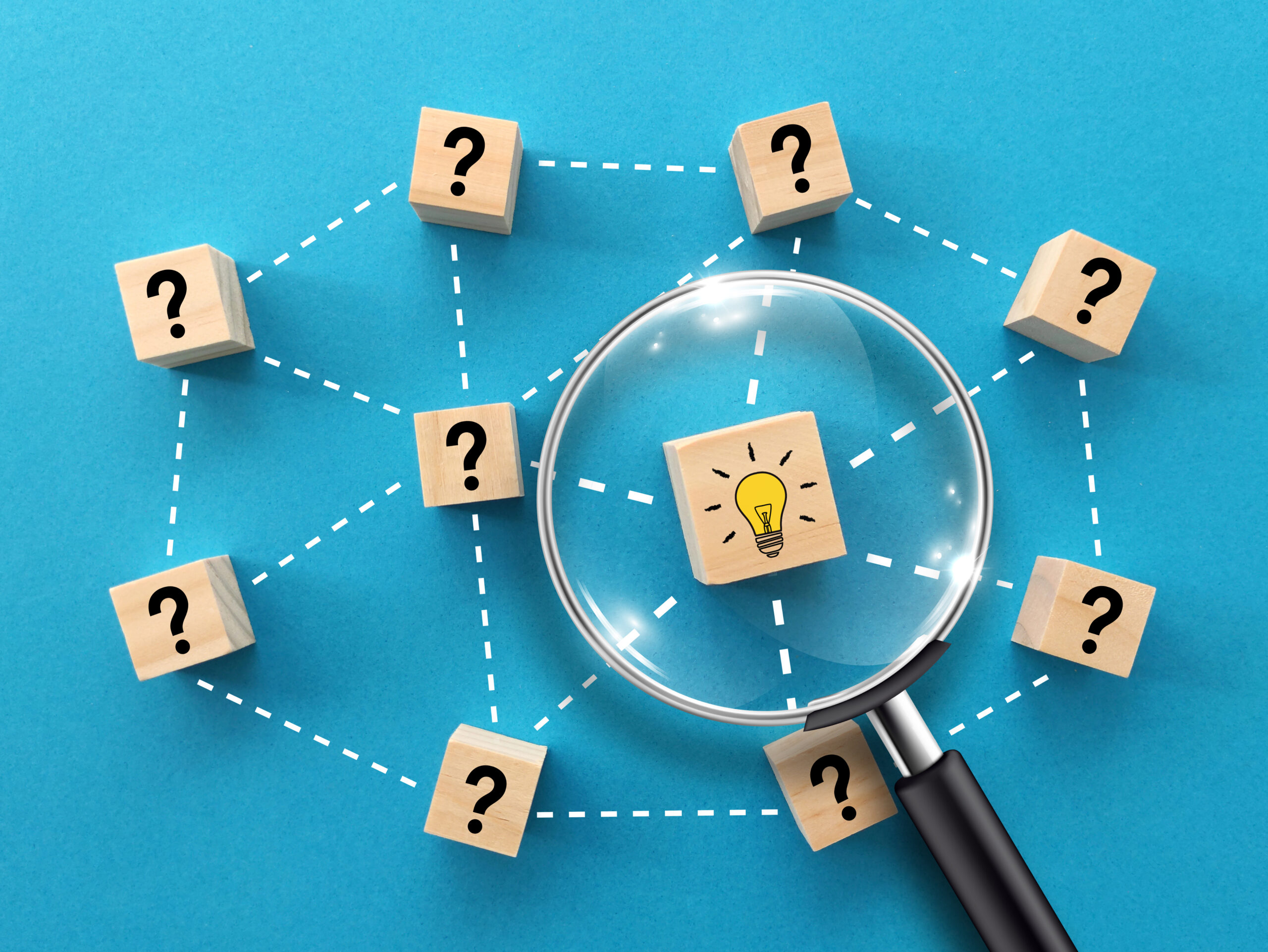What is Data Analytics in Healthcare
Data analytics in healthcare is defined as the process of collecting, analyzing, and interpreting large volumes of healthcare data to derive actionable insights and inform decision-making aimed at improving patient care, enhancing operational efficiency, and driving organizational performance. Data analytics involves the use of advanced statistical techniques, machine learning algorithms, and data visualization tools to uncover patterns, trends, correlations, and relationships within healthcare data.
Key aspects of data analytics in healthcare include:
- Data Collection: Healthcare data sources include electronic health records (EHRs), medical imaging files, laboratory test results, billing and claims data, administrative data, patient-generated data from wearable devices and mobile apps, and public health datasets. Data is collected from various sources and stored in structured or unstructured formats.
- Data Integration and Aggregation: Healthcare organizations aggregate and integrate data from disparate sources to create comprehensive datasets that provide a holistic view of patient populations, clinical processes, and healthcare operations. Data integration involves reconciling data from multiple sources, standardizing formats, and ensuring data quality and integrity.
- Descriptive Analytics: Descriptive analytics involves summarizing and visualizing healthcare data to describe past events, trends, and patterns. Descriptive analytics techniques include data visualization tools, dashboards, and reports that enable healthcare professionals to explore and understand data at a glance.
- Predictive Analytics: Predictive analytics leverages statistical modeling, machine learning algorithms, and predictive modeling techniques to forecast future outcomes, trends, or events based on historical data patterns. Predictive analytics enables healthcare organizations to anticipate patient outcomes, identify at-risk populations, and intervene proactively to prevent adverse events.
- Prescriptive Analytics: Prescriptive analytics involves using data-driven insights to recommend specific actions or interventions to optimize patient care, resource allocation, and operational efficiency. Prescriptive analytics models recommend the most effective courses of action based on predictive insights, cost-effectiveness analysis, and optimization algorithms.
- Clinical Decision Support: Data analytics powers clinical decision support systems (CDSS) that provide healthcare professionals with evidence-based recommendations, alerts, and guidelines at the point of care. CDSS leverage patient data, clinical guidelines, and best practices to assist clinicians in making informed decisions and improving patient outcomes.
- Population Health Management: Data analytics supports population health management initiatives aimed at improving the health outcomes of defined patient populations. Population health analytics identify high-risk patients, target interventions, and monitor population health trends to drive preventive care, chronic disease management, and wellness programs.
- Healthcare Quality Improvement: Data analytics plays a critical role in healthcare quality improvement efforts by measuring performance metrics, identifying areas for improvement, and evaluating the impact of quality improvement initiatives. Quality analytics help healthcare organizations assess adherence to clinical guidelines, benchmark performance against industry standards, and drive continuous improvement in patient care quality and safety.
- Healthcare Fraud Detection and Prevention: Data analytics techniques are used to detect and prevent healthcare fraud, waste, and abuse by analyzing claims data, identifying anomalous patterns, and flagging suspicious activities. Fraud analytics help healthcare payers and providers identify fraudulent claims, reduce financial losses, and protect healthcare resources.
- Research and Clinical Trials: Data analytics facilitates healthcare research and clinical trials by analyzing large-scale datasets, identifying patient cohorts, and uncovering insights that inform research hypotheses and study designs. Research analytics support evidence-based medicine, drug discovery, and clinical research efforts aimed at advancing medical knowledge and innovation.
Overall, data analytics in healthcare enables organizations to harness the power of data to drive informed decision-making, improve patient outcomes, optimize healthcare delivery, and enhance the overall quality and efficiency of healthcare services. By leveraging data analytics tools and techniques, healthcare organizations can unlock valuable insights from data and transform healthcare delivery in the digital age.
Importance of Data Analytics in Healthcare
Data analytics plays a crucial role in healthcare for several reasons, highlighting its importance in improving patient care, enhancing operational efficiency, and driving organizational performance. Here are some key aspects underscoring the importance of data analytics in healthcare:
1. Improved Patient Outcome: Data analytics enables healthcare organizations to analyze patient data, identify trends, and predict health outcomes. By leveraging predictive analytics, healthcare providers can anticipate and intervene in patient conditions before they escalate, leading to improved health outcomes and reduced hospital readmissions.
2. Enhanced Clinical Decision-Making: Healthcare professionals rely on data analytics to access relevant patient information, clinical guidelines, and best practices at the point of care. Clinical decision support systems powered by data analytics provide evidence-based recommendations, alert clinicians to potential risks, and guide treatment plans, ultimately improving the quality and safety of patient care.
3. Optimized Resource Allocation: Data analytics helps healthcare organizations allocate resources more effectively by identifying areas of inefficiency, waste, and overutilization. By analyzing operational data, organizations can optimize staffing levels, reduce wait times, and improve patient flow, leading to better resource utilization and cost savings.
4. Early Disease Detection and Prevention: Data analytics enables the early detection of diseases and health risks by analyzing patient data and identifying patterns indicative of potential health issues. Population health analytics help healthcare organizations identify at-risk populations, target interventions, and implement preventive measures to reduce the incidence of chronic diseases and improve public health outcomes.
5. Personalized Medicine and Precision Healthcare: Data analytics supports personalized medicine and precision healthcare initiatives by analyzing genomic data, medical histories, and treatment outcomes to tailor interventions to individual patients’ unique characteristics and needs. Precision analytics enable healthcare providers to deliver more targeted, effective treatments and therapies, improving patient outcomes and reducing adverse reactions.
6. Healthcare Fraud Detection and Prevention: Data analytics helps healthcare payers and providers detect and prevent fraud, waste, and abuse by analyzing claims data, identifying suspicious patterns, and flagging potentially fraudulent activities. Fraud analytics protect healthcare resources, reduce financial losses, and ensure compliance with regulatory requirements.
7. Continuous Quality Improvement: Data analytics supports healthcare quality improvement efforts by measuring performance metrics, monitoring outcomes, and identifying areas for improvement. Quality analytics enable healthcare organizations to assess adherence to clinical guidelines, benchmark performance against industry standards, and drive continuous improvement in patient care quality and safety.
8. Research and Innovation: Data analytics fuels healthcare research and innovation by analyzing large-scale datasets, identifying patient cohorts, and uncovering insights that inform research hypotheses and study designs. Research analytics support evidence-based medicine, drug discovery, and clinical research efforts aimed at advancing medical knowledge and innovation.
9. Healthcare Policy and Planning: Data analytics informs healthcare policy and planning by providing insights into population health trends, healthcare utilization patterns, and healthcare disparities. Policymakers and healthcare administrators use data analytics to make informed decisions, allocate resources effectively, and develop strategies to address public health challenges and improve healthcare access and equity.
10. Patient Engagement and Empowerment: Data analytics empowers patients to take an active role in managing their health and wellness by providing access to health information, personalized health insights, and self-care tools. Patient-generated data from wearable devices and mobile health apps enable individuals to track their health metrics, monitor progress toward health goals, and make informed decisions about their care.
Overall, data analytics plays a critical role in transforming healthcare delivery, improving patient outcomes, and driving innovation in the healthcare industry. By leveraging data analytics tools and techniques, healthcare organizations can harness the power of data to deliver more efficient, effective, and personalized care, ultimately enhancing the health and well-being of individuals and populations.
Learn more: What is Quality Improvement in Healthcare?
Examples of Data Analytics in Healthcare
Here are some examples of how data analytics is applied in various aspects of healthcare:
1. Clinical Decision Support Systems (CDSS)
CDSS utilize data analytics to provide healthcare professionals with real-time, evidence-based guidance at the point of care. These systems analyze patient data, clinical guidelines, and medical literature to offer recommendations for diagnosis, treatment options, and medication choices. For example, CDSS can alert physicians to potential drug interactions or suggest appropriate diagnostic tests based on patient symptoms.
2. Predictive Analytics for Disease Management
Healthcare organizations use predictive analytics to forecast disease trends, identify high-risk patient populations, and intervene proactively to prevent adverse health outcomes. For instance, predictive models can analyze patient data to predict the likelihood of readmission or complications for individuals with chronic conditions, allowing healthcare providers to implement targeted interventions and care management strategies.
3. Population Health Management
Data analytics supports population health management initiatives by analyzing large datasets to identify health trends, assess population health risks, and allocate resources effectively. For example, population health analytics can identify geographic areas with high rates of chronic diseases or populations with specific health needs, enabling healthcare organizations to develop tailored interventions and preventive programs to improve health outcomes.
4. Healthcare Fraud Detection
Data analytics is utilized to detect and prevent healthcare fraud, waste, and abuse by analyzing claims data and identifying anomalous patterns indicative of fraudulent activities. Fraud detection algorithms can flag suspicious billing practices, duplicate claims, or unusual utilization patterns, allowing healthcare payers to investigate and take corrective action to prevent financial losses.
5. Clinical Research and Drug Development
Data analytics supports clinical research and drug development by analyzing large-scale datasets to identify patient cohorts, assess treatment outcomes, and uncover insights that inform research hypotheses and study designs. For example, clinical trial analytics can analyze electronic health records and genomic data to identify eligible patients for clinical trials and assess treatment efficacy and safety.
6. Operational Analytics for Hospital Management
Hospitals utilize operational analytics to optimize resource allocation, improve patient flow, and enhance operational efficiency. For instance, hospitals can analyze patient admission and discharge data to predict bed utilization and staffing needs, enabling better capacity planning and allocation of resources to meet patient demand.
7. Telemedicine and Remote Monitoring
Data analytics powers telemedicine and remote monitoring solutions by analyzing patient-generated data from wearable devices and remote monitoring tools. For example, remote monitoring platforms can analyze real-time biometric data such as blood pressure, heart rate, and glucose levels to detect trends and abnormalities, enabling healthcare providers to intervene promptly and adjust treatment plans as needed.
8. Patient Engagement and Personalized Health Interventions
Healthcare organizations leverage data analytics to engage patients and deliver personalized health interventions. For example, patient engagement platforms can analyze patient preferences, health behaviors, and treatment adherence patterns to tailor educational materials, reminders, and support resources to individual patient needs, promoting better patient engagement and self-management of health.
These examples illustrate how data analytics is applied across various domains of healthcare to improve patient care, enhance operational efficiency, and drive innovation in the delivery of healthcare services. By leveraging data analytics tools and techniques, healthcare organizations can unlock valuable insights from data and transform healthcare delivery to meet the evolving needs of patients and communities.
Benefits of Data Analytics in Healthcare
Data analytics offers a multitude of benefits to the healthcare industry, revolutionizing patient care, operational efficiency, and organizational performance. Here are some key benefits of data analytics in healthcare:
- Improved Patient Outcomes: Data analytics enables healthcare providers to analyze patient data comprehensively, identify patterns, and predict health outcomes. By leveraging predictive analytics, healthcare professionals can intervene earlier in patient conditions, leading to improved health outcomes, reduced hospital readmissions, and better overall patient care.
- Enhanced Clinical Decision-Making: Healthcare professionals rely on data analytics to access relevant patient information, clinical guidelines, and best practices at the point of care. Clinical decision support systems powered by data analytics provide evidence-based recommendations, alert clinicians to potential risks, and guide treatment plans, ultimately improving the quality and safety of patient care.
- Optimized Resource Allocation: Data analytics helps healthcare organizations allocate resources more effectively by identifying areas of inefficiency, waste, and overutilization. By analyzing operational data, organizations can optimize staffing levels, reduce wait times, and improve patient flow, leading to better resource utilization, cost savings, and operational efficiency.
- Early Disease Detection and Prevention: Data analytics enables the early detection of diseases and health risks by analyzing patient data and identifying patterns indicative of potential health issues. Population health analytics help healthcare organizations identify at-risk populations, target interventions, and implement preventive measures to reduce the incidence of chronic diseases and improve public health outcomes.
- Personalized Medicine and Precision Healthcare: Data analytics supports personalized medicine and precision healthcare initiatives by analyzing genomic data, medical histories, and treatment outcomes to tailor interventions to individual patients’ unique characteristics and needs. Precision analytics enable healthcare providers to deliver more targeted, effective treatments and therapies, improving patient outcomes and reducing adverse reactions.
- Healthcare Fraud Detection and Prevention: Data analytics helps healthcare payers and providers detect and prevent fraud, waste, and abuse by analyzing claims data, identifying suspicious patterns, and flagging potentially fraudulent activities. Fraud analytics protect healthcare resources, reduce financial losses, and ensure compliance with regulatory requirements.
- Continuous Quality Improvement: Data analytics supports healthcare quality improvement efforts by measuring performance metrics, monitoring outcomes, and identifying areas for improvement. Quality analytics enable healthcare organizations to assess adherence to clinical guidelines, benchmark performance against industry standards, and drive continuous improvement in patient care quality and safety.
- Research and Innovation: Data analytics fuels healthcare research and innovation by analyzing large-scale datasets, identifying patient cohorts, and uncovering insights that inform research hypotheses and study designs. Research analytics support evidence-based medicine, drug discovery, and clinical research efforts aimed at advancing medical knowledge and innovation.
- Healthcare Policy and Planning: Data analytics informs healthcare policy and planning by providing insights into population health trends, healthcare utilization patterns, and healthcare disparities. Policy makers and healthcare administrators use data analytics to make informed decisions, allocate resources effectively, and develop strategies to address public health challenges and improve healthcare access and equity.
- Patient Engagement and Empowerment: Data analytics empowers patients to take an active role in managing their health and wellness by providing access to health information, personalized health insights, and self-care tools. Patient-generated data from wearable devices and mobile health apps enable individuals to track their health metrics, monitor progress toward health goals, and make informed decisions about their care.
Overall, data analytics plays a critical role in transforming healthcare delivery, improving patient outcomes, and driving innovation in the healthcare industry. By leveraging data analytics tools and techniques, healthcare organizations can harness the power of data to deliver more efficient, effective, and personalized care, ultimately enhancing the health and well-being of individuals and populations.
Learn more: What is Healthcare Innovation?
Big Data Analytics in Healthcare and Its Benefits
Big data analytics in healthcare refers to the process of analyzing large and complex datasets generated from various sources within the healthcare ecosystem to extract valuable insights, patterns, and trends. Here are some key benefits of big data analytics in healthcare:
1. Predictive Analytics for Early Disease Detection
Big data analytics enables healthcare organizations to analyze large volumes of patient data, including electronic health records (EHRs), medical imaging files, genetic data, and wearable device data, to identify early signs of disease and predict health outcomes. Predictive analytics algorithms can detect patterns indicative of disease onset or progression, allowing healthcare providers to intervene early, initiate preventive measures, and improve patient outcomes.
2. Personalized Medicine and Precision Healthcare
Big data analytics supports personalized medicine initiatives by analyzing patient-specific data, including genetic profiles, medical histories, and treatment outcomes, to tailor interventions and treatment plans to individual patient characteristics and needs. Precision analytics enable healthcare providers to deliver targeted therapies, optimize treatment efficacy, and minimize adverse reactions, leading to better patient outcomes and improved quality of care.
3. Population Health Management
Big data analytics enables healthcare organizations to assess population health risks, identify high-risk patient cohorts, and implement targeted interventions to improve health outcomes at the population level. Population health analytics analyze large datasets, including demographic data, clinical data, and social determinants of health, to identify health disparities, assess community health needs, and develop preventive strategies to address public health challenges.
4. Operational Efficiency and Cost Reduction
Big data analytics helps healthcare organizations optimize operational efficiency, reduce costs, and streamline workflows by analyzing operational data, including patient flow, resource utilization, and supply chain management. Analytics-driven insights enable healthcare providers to identify inefficiencies, streamline processes, and allocate resources effectively, leading to cost savings and improved financial performance.
5. Clinical Research and Drug Development
Big data analytics supports clinical research and drug development efforts by analyzing large-scale datasets to identify patient cohorts, assess treatment outcomes, and uncover insights that inform research hypotheses and study designs. Big data analytics enable researchers to analyze real-world data from diverse patient populations, accelerate clinical trials, and identify novel therapeutic targets, ultimately driving innovation and advancing medical knowledge.
6. Healthcare Fraud Detection and Prevention
Big data analytics helps healthcare payers and providers detect and prevent healthcare fraud, waste, and abuse by analyzing claims data, identifying anomalous patterns, and flagging potentially fraudulent activities. Fraud detection algorithms leverage big data analytics techniques to detect fraudulent billing practices, identify duplicate claims, and uncover suspicious utilization patterns, enabling healthcare organizations to mitigate financial losses and protect healthcare resources.
7. Patient Engagement and Empowerment
Big data analytics empowers patients to take an active role in managing their health and wellness by providing access to personalized health insights, self-care tools, and remote monitoring solutions. Patient-generated data from wearable devices and mobile health apps enable individuals to track their health metrics, monitor progress toward health goals, and make informed decisions about their care, leading to better patient engagement and improved health outcomes.
Overall, big data analytics holds tremendous potential to transform healthcare delivery, improve patient care, and drive innovation in the healthcare industry. By leveraging big data analytics tools and techniques, healthcare organizations can harness the power of data to deliver more personalized, efficient, and effective care, ultimately enhancing the health and well-being of individuals and populations.
Learn more: What is Patient Engagement in Healthcare?
Most Recent Posts
Explore the latest innovation insights and trends with our recent blog posts.













